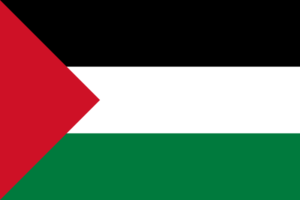Staunchly secular Syria is seeing an Islamic revival, fuelled by anger at the occupation of Iraq, at violence in the Palestinian territories, and frustration at the slow pace of internal reform.
Syria has been ruled by the Ba’ath party – socialist, secular and nationalist – for more than 40 years. Now, however, more people going to the mosque, more women are wearing the veil and clerics are urging armed jihad in Palestine and Iraq.
“There is very obviously a more populist militant Islam growing in Syria,” said analyst Samir el Taqi in a recent interview. “You can never know whether this energy is going to be turned against the regime or the Americans. For the moment, events in the region and the humiliation felt by people mean that the anger is turned at the Americans.”
The regime crushed a Muslim Brotherhood rebellion in the early 1980s, killing more than 10,000 people, and Syria is still a country where Islam is mostly moderate and apolitical. Sheikh Salah Kaftaro, director of the Islamic Abu Nour foundation, recently said- “There is no room for political Islam on our agenda.”
At the foundation, a centre for charity and religious education founded in 1975, the message taught to some 5,000 students, 20 per cent of whom are foreigners, is one of moderation. “We try through our teachings to inculcate in the minds of our students of the Sharia [Islamic law], the notion of moderation, tolerance and dialogue with non-Muslims and respect,” said Sheikh Salah Kaftaro, the son of the Grand Mufti of the republic, Sheikh Ahmad Kaftaro.
“We believe this is one of the pillars of our religion. Islamic schools such as ours have a great role at a national and Muslim level, at atime when Islam is being accused of being a religion of extremism and terrorism.”
“I’ve chosen this particular place because of its reputation as a balanced teaching school of the religion. This school is not about debating, it’s not about having dialogues on current events,” says Mansour, 22, an American from Atlanta, Georgia. “This school is about teaching the language and the fundamentals of religion and that’s what I mean with balanced, it doesn’t try to have a mental influence on our political views because we do hear about other schools which want their students to be more indoctrinated with their philosophies.”
Certainly, some people seem to be coming away from Syria with a different message. In April last year, Asif Hanif, a British Muslim, blew himself up in a Tel Aviv bar. He had studied Islam and Arabic in Damascus.
After the bombings in Turkey last year against British and Jewish targets, Syria expelled 22 Turks suspected to be linked to the bombing. Some of them had fled to Syria after the attacks and three of them had been studying at the Abu Nour foundation.
In March, Syria announced it would no longer allow foreign students to register at the Islamic schools. But Sheikh Salah Kaftaro said the foundation and other Islamic institutes could not be held responsible for the actions of every person that once attended the school.
Slightly less moderate is Sheikh Mohsen al Qaaqaa, a very popular firebrand cleric in Aleppo. Until a few months ago he was protected by men wearing camouflage trousers and openly calling for an Islamic state in Syria though he stopped short of advocating armed struggle. He was recently removed from the mosque and says this was due to temporary administrative problems, though people in his entourage say he had gone too far for the authorities.
“The regime has propped up benign Islamists it keeps under its control for two reasons,” said analyst Abdel Razzak Eid from Aleppo. “One is to silence internal demands for reform and justify the continued clampdown because of the threat of Islamists as well outside threats, such as from the US.
“Syria also wants to show the world, including the US, that if the current regime crumbles, it will be replaced by those Islamists.”
